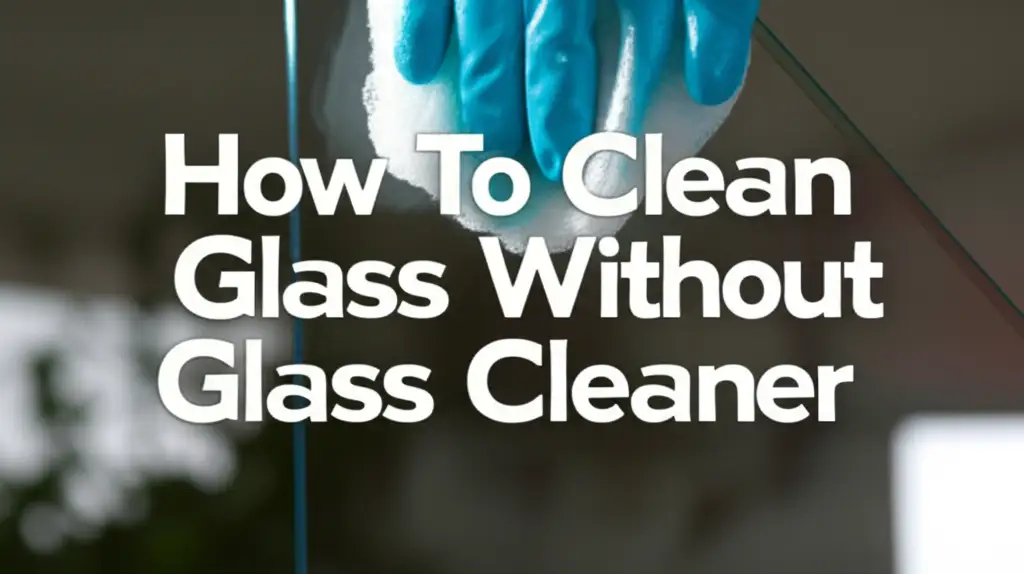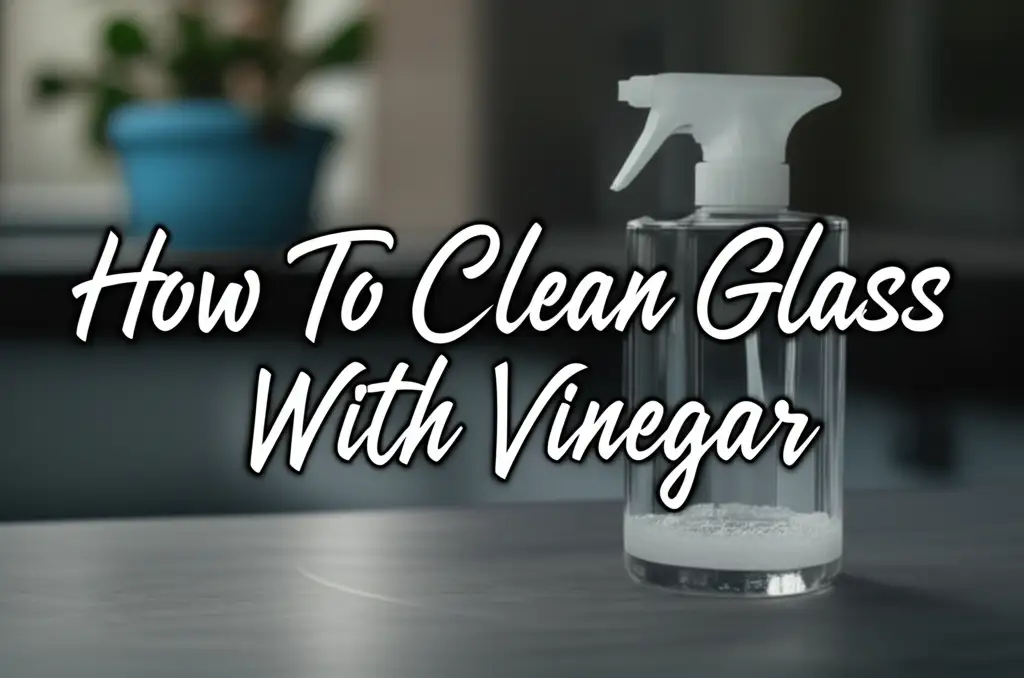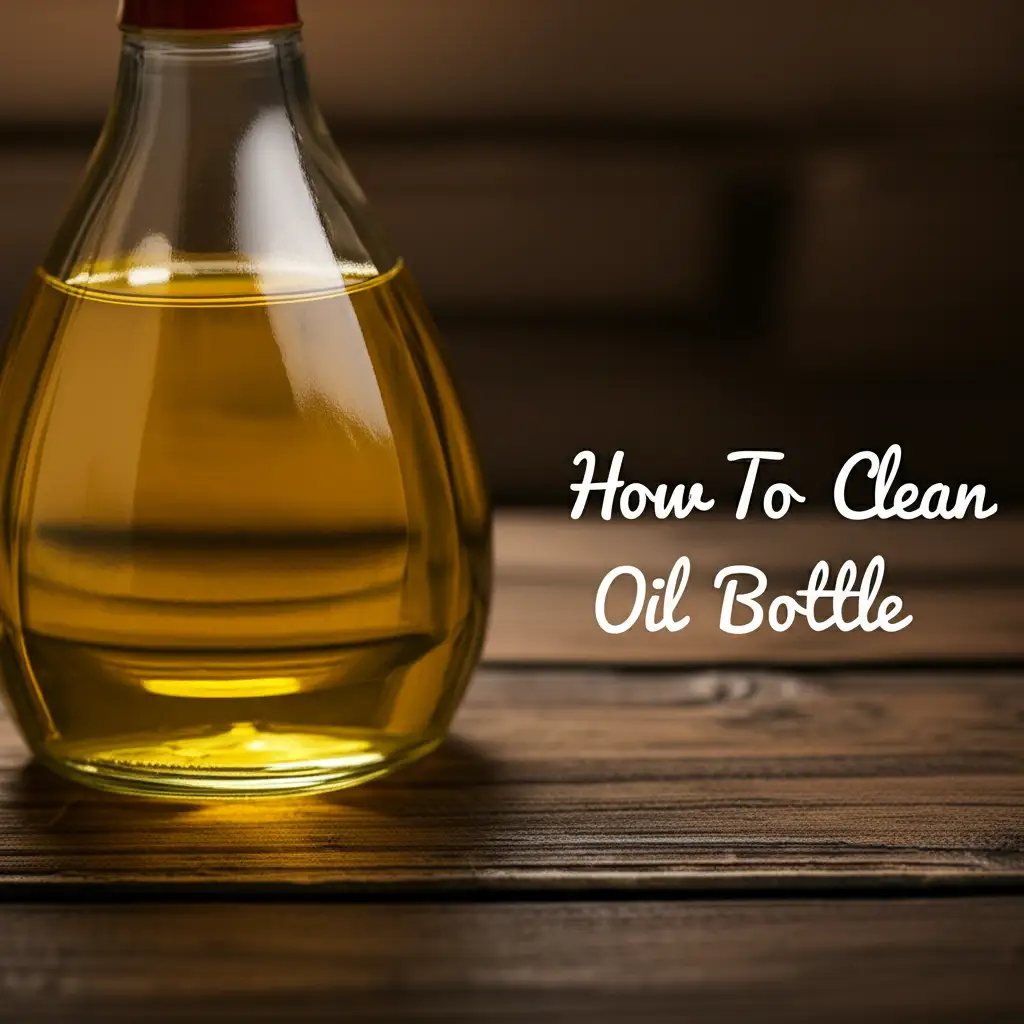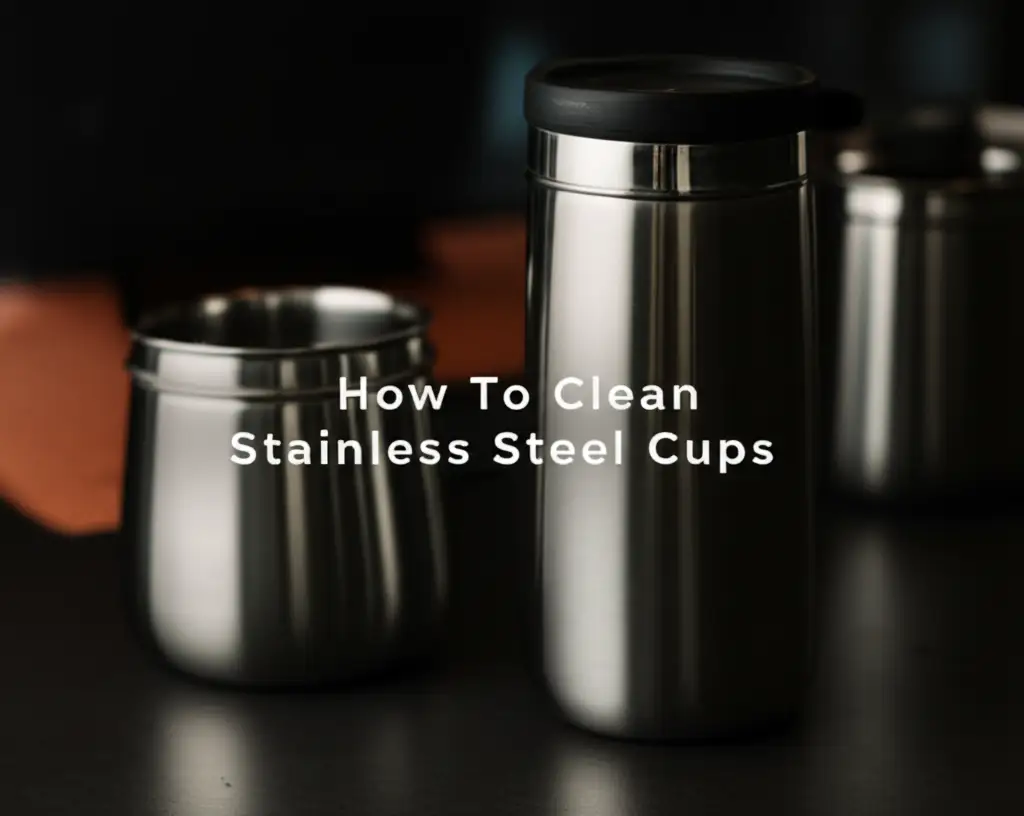· DIY Home Cleaning · 15 min read
How To Clean Glass Without Glass Cleaner

How to Clean Glass Without Glass Cleaner: Simple Solutions
I often wonder if there is a better way to clean. The harsh chemicals in many commercial glass cleaners can be concerning. You might also find yourself out of cleaner when you need it most. Learning how to clean glass without glass cleaner is simple and effective. This guide explores several natural, homemade solutions. We will cover methods using vinegar, rubbing alcohol, cornstarch, and more. Get ready to achieve streak-free, sparkling glass with items you already own.
Takeaway
- Use white vinegar and water for a basic, effective glass cleaner.
- Combine rubbing alcohol with water for quick drying and shine.
- Add cornstarch to solutions for extra scrubbing power against grime.
- Always use microfiber cloths or newspapers for streak-free results.
- Clean glass on a cloudy day to prevent fast drying and streaks.
You can clean glass without glass cleaner using simple household items. White vinegar mixed with water is a popular, effective choice. Rubbing alcohol and cornstarch solutions also work well. Always wipe with a clean microfiber cloth or newspaper for a streak-free finish.
Harnessing Vinegar Power for Streak-Free Glass
White vinegar stands out as a top natural cleaning agent. It is affordable, readily available, and very effective. Vinegar’s acidic nature breaks down dirt, grease, and grime on glass surfaces. It leaves windows, mirrors, and other glass items sparkling. Many people prefer vinegar because it avoids the chemicals found in store-bought cleaners. I find its cleaning power impressive.
To make a basic vinegar solution, mix equal parts white vinegar and distilled water. Distilled water prevents mineral deposits that can cause streaks. You can also add a few drops of essential oil for a pleasant scent. Mint or lemon oil are popular choices. This simple mixture provides a powerful way to clean glass without glass cleaner.
Pour your solution into a clean spray bottle. Spray the glass surface evenly, covering the entire area. Allow the mixture to sit for a minute on heavily soiled glass. This gives the vinegar time to work its magic on stubborn spots. For optimal results, clean your glass on a cloudy day. Direct sunlight causes the solution to dry too quickly, leading to streaks.
Wipe the glass using a clean, lint-free microfiber cloth or crumpled newspaper. Work from top to bottom in overlapping strokes. This method pushes dirt downwards, preventing new streaks. For a deeper clean on kitchen surfaces, learn how to clean glass stove top with vinegar. The natural acidity of vinegar efficiently cuts through grease and baked-on food.
Vinegar cleaning offers a simple, effective, and environmentally friendly approach. It helps you keep your home clean without relying on commercial products. Give this method a try for truly clear glass. You will see a noticeable difference.
Rubbing Alcohol: Your Fast-Drying Glass Cleaning Secret
Rubbing alcohol offers another fantastic option for streak-free glass. Isopropyl alcohol, the common type of rubbing alcohol, evaporates very quickly. This fast drying time is key to achieving a shine without residue or streaks. It also dissolves oils and grime effectively. Using rubbing alcohol means you can clean glass without glass cleaner and get immediate results.
To create an alcohol-based cleaner, combine one part rubbing alcohol with one part distilled water. For example, mix one cup of alcohol with one cup of water. You can add a tablespoon of white vinegar to this mixture for extra cleaning power. Some people add a drop of dish soap, but use it sparingly to avoid suds. I find this mixture particularly effective for mirrors and car windows, where quick drying is crucial.
Transfer the solution to a spray bottle. Spray a fine mist onto the glass surface. Do not over-saturate the glass, as a little goes a long way. The alcohol immediately begins to evaporate. This process lifts away dirt and leaves glass sparkling. This method is safe for most glass surfaces.
Wipe the glass immediately after spraying. Use a clean microfiber cloth or a lint-free towel. Move your hand in straight, overlapping lines from top to bottom. This technique ensures an even clean and prevents streaks. Rubbing alcohol is excellent for removing fingerprints and smudges quickly. It helps you clean glass without needing specialized products.
Always ensure good ventilation when using rubbing alcohol. While less harsh than some commercial cleaners, it has a strong odor. Its fast-drying nature makes it a reliable choice for busy households. This secret ingredient helps you maintain perfectly clear glass surfaces.
Cornstarch Magic: Deep Cleaning Glass Without Harsh Chemicals
Cornstarch might seem like an unusual cleaning ingredient, but it works wonders on glass. This fine powder acts as a mild abrasive. It helps to lift stubborn dirt and grime from the glass surface. Cornstarch also absorbs oils and residues, making it excellent for achieving a truly deep clean. It is a fantastic way to clean glass without harsh chemical cleaners.
You can add cornstarch to your existing homemade cleaning solutions. A popular recipe involves one part white vinegar, one part distilled water, and two tablespoons of cornstarch. Stir the mixture well to dissolve the cornstarch. You can also add a small amount of rubbing alcohol for faster drying. I discovered that this combination effectively tackles cloudy glass surfaces.
For application, pour the cornstarch mixture into a spray bottle. Shake the bottle well before each use, as cornstarch can settle at the bottom. Spray the solution generously onto the glass. Let it sit for a few minutes. The cornstarch helps loosen dirt and provides gentle scrubbing action as you wipe. This method is particularly useful for glass that has a hazy appearance or accumulated grime.
Use a clean, dry microfiber cloth or a crumpled piece of newspaper to wipe the glass. The cornstarch particles help to scrub away tough spots without scratching. They also absorb any leftover moisture and residue, leaving a pristine finish. This is especially effective if you need to clean calcium buildup on glass, as the mild abrasive quality helps dislodge mineral deposits.
Cornstarch truly is a secret weapon for glass cleaning. It enhances the power of natural cleaners and delivers exceptional results. This ingredient proves that you do not need strong chemicals to achieve sparkling clean glass. It offers a gentle yet effective solution for challenging glass cleaning tasks.
Dish Soap and Lemon: Simple Additions to Clean Glass Naturally
Beyond vinegar, alcohol, and cornstarch, other household items offer natural glass cleaning solutions. Dish soap and lemon juice are two such powerful additions. They provide effective ways to clean glass without glass cleaner, especially when dealing with specific types of grime. These gentle yet effective ingredients can handle various glass cleaning challenges.
Dish soap is excellent for cutting through grease and oily residue. A single drop of dish soap in a spray bottle of water can work wonders on very dirty glass. This is particularly useful for kitchen windows or glass tabletops that accumulate cooking grease. The soap helps emulsify the oils, making them easier to wipe away. I often use this method for my greasy kitchen windows.
To make a dish soap solution, mix one teaspoon of gentle dish soap with two cups of warm water. Stir gently to avoid creating too many suds. Pour this into a spray bottle. Spray the greasy glass surface thoroughly. Let it sit for a moment to break down the grease. Then, wipe with a clean, lint-free cloth or squeegee. Rinse the glass with clean water afterward to remove any soap residue.
Lemon juice adds both cleaning power and a fresh scent. Its natural acidity helps to dissolve mineral deposits and light grime. You can combine lemon juice with water or even vinegar for enhanced cleaning. Mix the juice of one lemon with one cup of water. Use this mixture on glass for a streak-free shine and a pleasant citrus aroma. It is a good choice for general window cleaning.
These natural additions offer versatility in your cleaning arsenal. They allow you to tailor your homemade solutions to the specific mess at hand. Using dish soap and lemon is an easy, eco-friendly way to maintain clean glass surfaces. They prove that effective cleaning does not require harsh chemicals.
Mastering Technique for Sparkling, Streakless Glass
Having the right cleaning solution is only half the battle. Your technique plays a crucial role in achieving truly streak-free glass. Many people struggle with streaks even after using effective cleaners. The method you use to wipe and buff your glass makes a significant difference. Learning proper technique helps you clean glass without glass cleaner successfully.
First, choose the right wiping tool. Microfiber cloths are exceptional for glass cleaning. Their unique fibers pick up dirt and moisture without leaving lint. Newspaper, especially black-and-white newsprint, is another excellent option. It absorbs well and leaves no fibers behind, helping to achieve a streak-free black glass stove top. Avoid paper towels, as they often leave lint and can cause streaks.
Always clean glass on a cloudy or overcast day. Direct sunlight causes your cleaning solution to dry too quickly. This quick drying leads to unsightly streaks and water spots. If you must clean on a sunny day, work in small sections. Wipe immediately after spraying to prevent premature drying. This timing tip is vital for achieving clear results.
Spray your chosen homemade solution onto the glass surface. Do not over-saturate it; a light mist is usually sufficient. Begin wiping from the top of the glass and work your way down. Use consistent, overlapping strokes. This technique ensures you cover every part of the surface. It also pushes dirt downward, preventing it from redepositing on already clean areas.
For large windows, a squeegee can be very effective. Use a clean, sharp rubber blade. Overlap each stroke by about an inch to prevent missed spots. Wipe the blade clean after each pass. Finishing with a quick buff using a dry microfiber cloth polishes the glass. This meticulous approach prevents streaks and leaves your glass sparkling. It also helps to prevent a cloudy appearance on sliding glass doors, ensuring maximum clarity and light.
Tackling Stubborn Stains: Hard Water and Scum on Glass
Cleaning general grime is one thing, but stubborn stains like hard water spots and soap scum require specific approaches. These mineral deposits and soap residues can make glass look cloudy and dirty. Fortunately, you can effectively tackle these tough stains without resorting to harsh commercial cleaners. Homemade solutions provide powerful alternatives to clean glass without glass cleaner, even for challenging marks.
Hard water stains are common, especially in bathrooms and on outdoor glass. They form when minerals in water dry and leave deposits behind. Vinegar is your best friend for these stains. For light hard water spots, spray undiluted white vinegar directly onto the stain. Let it sit for 5-10 minutes. The acid in the vinegar helps dissolve the minerals. Then, scrub with a non-abrasive sponge or a microfiber cloth. For persistent hard water stains on shower glass, you might need to apply a vinegar-soaked cloth directly to the area and let it sit for a longer period, perhaps 30 minutes to an hour.
For very tough hard water buildup, make a paste of baking soda and vinegar. Mix equal parts baking soda and white vinegar to form a thick paste. Apply this paste directly onto the stain. Let it sit for 10-15 minutes. The baking soda provides a gentle abrasive, while the vinegar dissolves the minerals. Gently scrub the area with a soft brush or cloth, then rinse thoroughly.
Soap scum is another common issue, particularly on shower doors. It forms from the combination of soap, body oils, and hard water. A strong vinegar solution works well here. Mix equal parts white vinegar and dish soap in a spray bottle. The dish soap helps cut through the greasy component of the scum. Spray the mixture generously onto the soap scum from glass shower doors. Allow it to sit for 15-30 minutes. Scrub with a stiff brush or a non-scratch scouring pad, then rinse completely with water.
Regular maintenance helps prevent severe buildup. Wiping down glass surfaces after each use reduces the accumulation of hard water and soap scum. These simple, natural methods save you money and keep your glass sparkling clean. They prove that you can achieve pristine results using common household items.
Maintaining Clear Glass: Tips for Long-Lasting Shine
Cleaning your glass effectively is important, but maintaining that pristine condition is equally vital. Regular habits and simple preventative measures can significantly extend the time between deep cleans. You can keep your glass surfaces looking clear and bright with minimal effort. This approach helps reduce the need for frequent deep cleaning and ensures your glass always shines.
One of the easiest ways to maintain clear glass is to wipe it down regularly. For bathroom mirrors and shower doors, a quick wipe after each use can prevent water spots and soap scum from forming. Keep a small squeegee or a dedicated microfiber cloth nearby. After a shower, quickly squeegee the glass doors. This simple act makes a huge difference. It stops mineral deposits from drying onto the glass.
For windows and other glass surfaces, a light dusting once a week helps prevent dirt buildup. Use a dry microfiber cloth to remove dust and light smudges. This keeps the glass from becoming heavily soiled. When you do a more thorough clean, it will be much easier. Preventing dirt accumulation is always better than tackling a thick layer of grime.
Consider using a glass protectant. After cleaning, some products can create a barrier on the glass surface. This barrier repels water, dust, and grime. While these are not homemade, they reduce the frequency of intense cleaning. Look for eco-friendly or natural options if you prefer to avoid harsh chemicals. This protective layer makes future cleaning sessions much quicker and more effective.
Teach everyone in your household to be mindful of glass surfaces. Encourage them to wipe away fingerprints or spills immediately. The quicker a mess is addressed, the easier it is to clean. These small daily efforts compound over time. They result in consistently clear and beautiful glass throughout your home.
Ultimately, maintaining clean glass is about consistency and prevention. By incorporating these simple habits, you can enjoy sparkling glass surfaces for longer periods. This reduces your cleaning burden and enhances the overall cleanliness of your living space.
FAQ Section
Q: Can I use tap water with homemade glass cleaners? A: Using distilled water is best for homemade glass cleaners. Tap water contains minerals that can leave streaks or water spots on glass as it dries. Distilled water is mineral-free, ensuring a clearer, streak-free finish. If you must use tap water, try to boil and cool it first to reduce mineral content.
Q: How do I prevent streaks when cleaning glass without glass cleaner? A: To prevent streaks, use a clean, lint-free microfiber cloth or crumpled newspaper. Avoid cleaning on sunny days, as the solution dries too fast. Work in overlapping strokes from top to bottom. Buffing with a dry cloth after cleaning also helps achieve a streak-free shine.
Q: Are homemade glass cleaners safe for all glass types, like tinted windows or screens? A: Most homemade glass cleaners (vinegar, alcohol-based) are safe for standard glass. However, exercise caution with tinted windows, anti-glare screens, or delicate electronic displays. Always test a small, inconspicuous area first. Some tinting films or coatings may react poorly to acidic or alcohol-based solutions.
Q: What if my glass has a very sticky residue, like from stickers or tape? A: For sticky residues like from stickers or tape, apply rubbing alcohol or a small amount of cooking oil directly to the residue. Let it soak for a few minutes to dissolve the adhesive. Then, gently scrape it off with a plastic scraper or an old credit card. Follow up with your preferred homemade glass cleaner.
Q: Can I store homemade glass cleaner solutions for a long time? A: Homemade glass cleaner solutions, especially those containing vinegar or alcohol, can be stored for several weeks or months in a sealed spray bottle. Solutions with cornstarch might settle, requiring a good shake before each use. Store them in a cool, dark place to maintain their effectiveness.
Q: What is the best way to clean outdoor windows without commercial cleaners? A: For outdoor windows, use a bucket of warm water mixed with white vinegar and a squirt of dish soap. Use a soft brush or sponge on a pole to scrub the windows. Rinse thoroughly with a garden hose on a strong jet setting. Finish with a squeegee for best results.
Conclusion
Cleaning glass without glass cleaner is not only possible but also incredibly effective. We have explored several powerful, natural methods using common household items. White vinegar, rubbing alcohol, and even cornstarch prove to be excellent alternatives. These solutions offer a safe and eco-friendly way to achieve sparkling, streak-free glass throughout your home. I have found these methods both simple and rewarding.
By following the techniques discussed, such as using microfiber cloths and cleaning on cloudy days, you can master streak-free results. Remember that tackling stubborn stains like hard water or soap scum also has natural solutions. These approaches save you money while reducing chemical exposure in your living space. Embrace these natural methods to keep your glass pristine. Your windows and mirrors will thank you for the shine. Start your natural cleaning journey today.
- natural glass cleaner
- homemade cleaning solutions
- streak-free glass
- eco-friendly cleaning
- window cleaning tips




